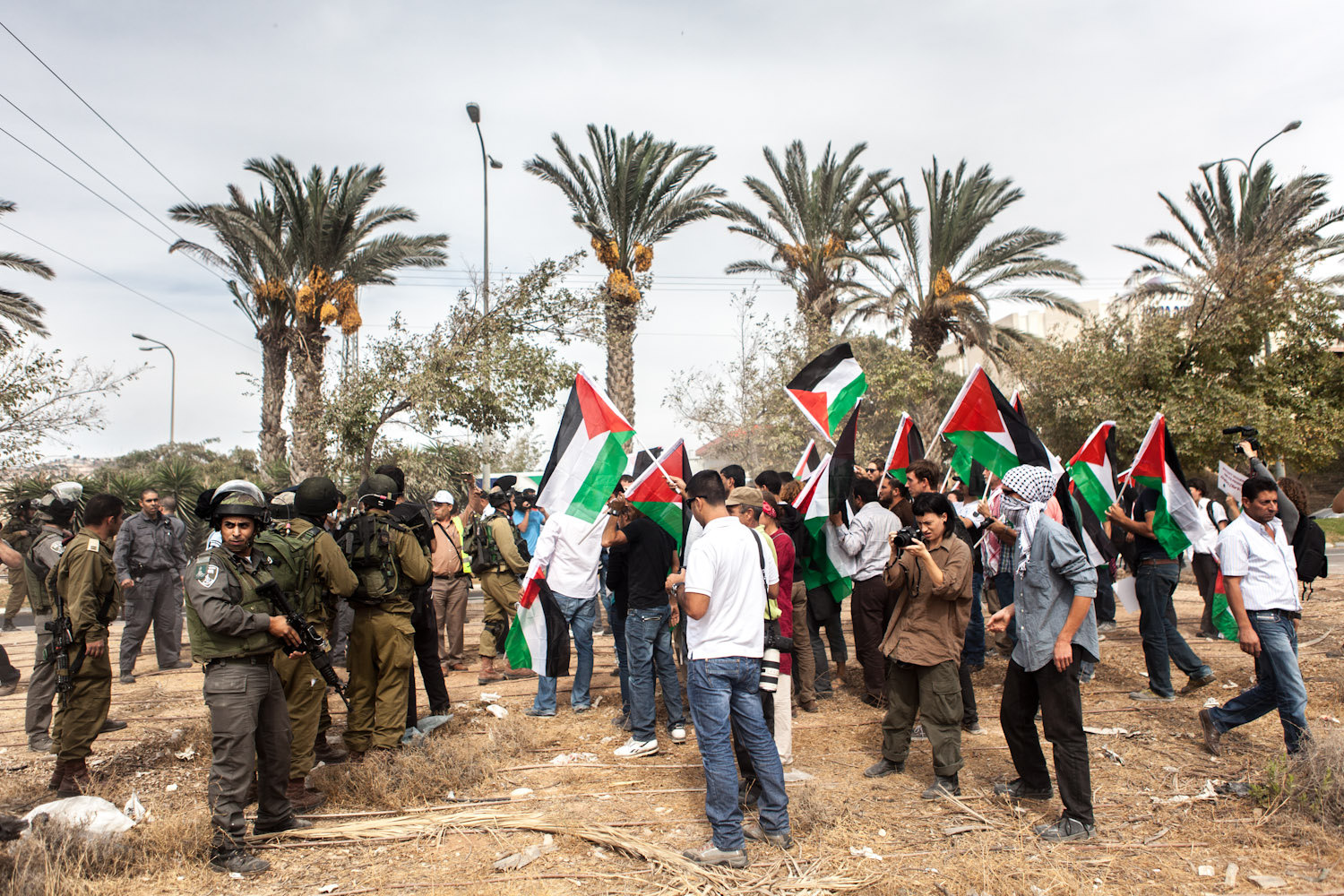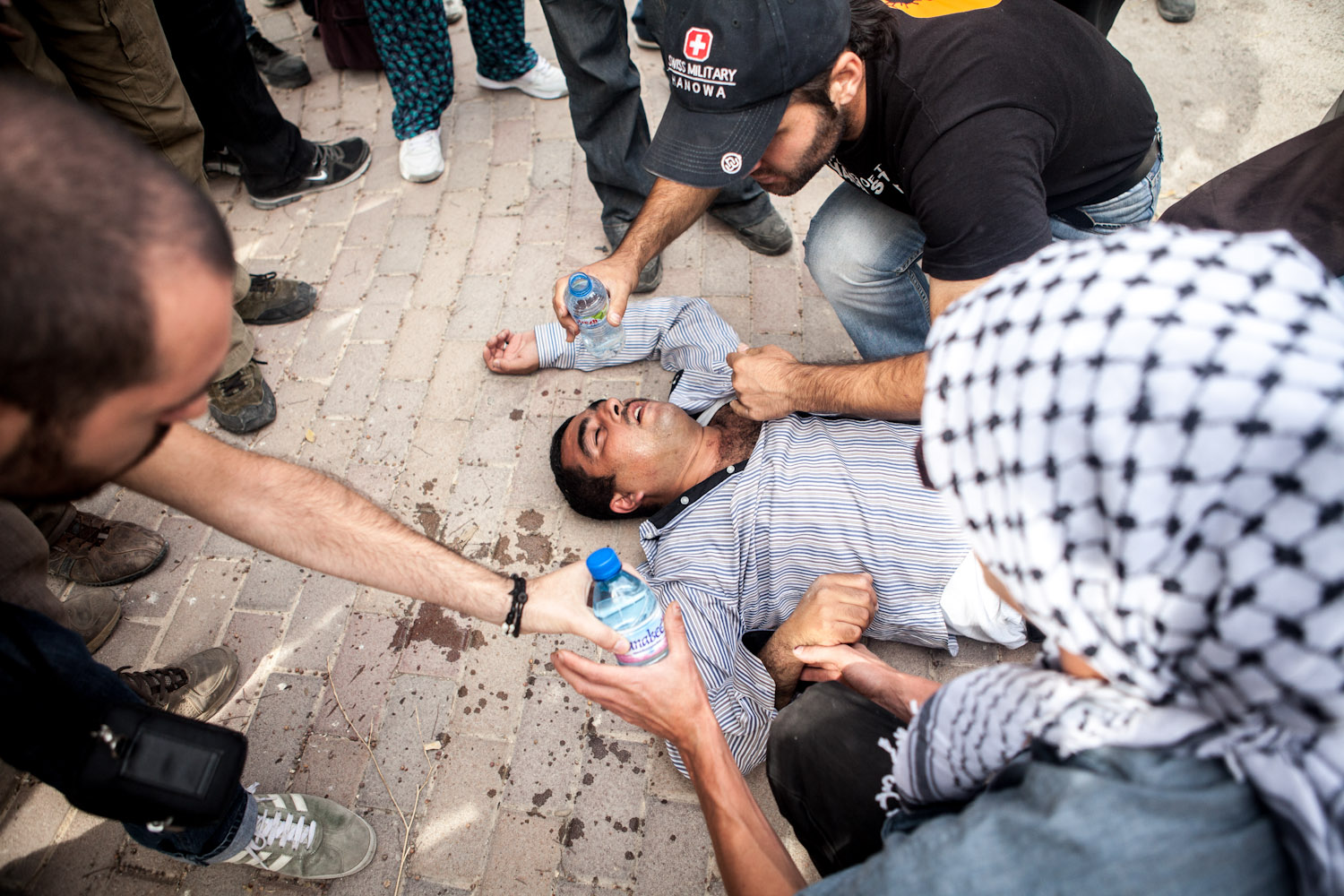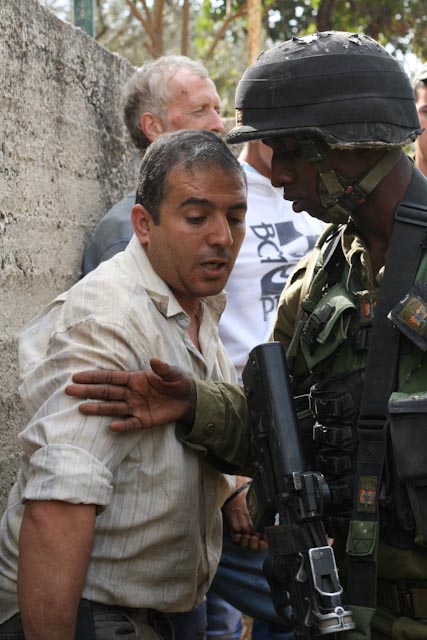Category: Press Releases
-
URGENT – FUNDS NEEDED – International activists threatened with illegal deportation – UPDATED
25 October 2012 | International Solidarity Movement, West Bank DONATE HERE: https://palsolidarity.org/donate/ ————— UPDATE 26th October: international activist Elyana Belle, currently fighting an illegal deportation order, reports on her arrest and detention: During her arrest, Elyana received blows to her head and injuries to her neck by four Israeli police officers who dragged her from…
-
Bassem Tamimi injured and arrested with 3 others at Boycott Israel protest
24 October 2012 | International Solidarity Movement, West Bank VIDEO from the action: Dozens of Palestinians and internationals protest at Rami Levy Supermarket near the illegal settlement of Sha´ar Benyamin on October 24th. This direct action aims to highlight the Boycott-Divestment-Sanctions (BDS) Campaign that seeks to promote a boycott of Israeli goods. Four people, including…
-
3 Arrested as Palestinians attacked by settlers and soldiers in Tel Rumeida
By Vicky Blackwell and Elyana Belle Photographs by Vicky Blackwell 22 October 2012 | International Solidarity Movement, West Bank VIDEO from Youth Against Settlements: UPDATE: 10.30pm – All 3 men have now been released without charge. Today, a group of settlers from the illegal settlement in Tel Rumeida arrived at Hashem Azzeh’s olive grove next to…



